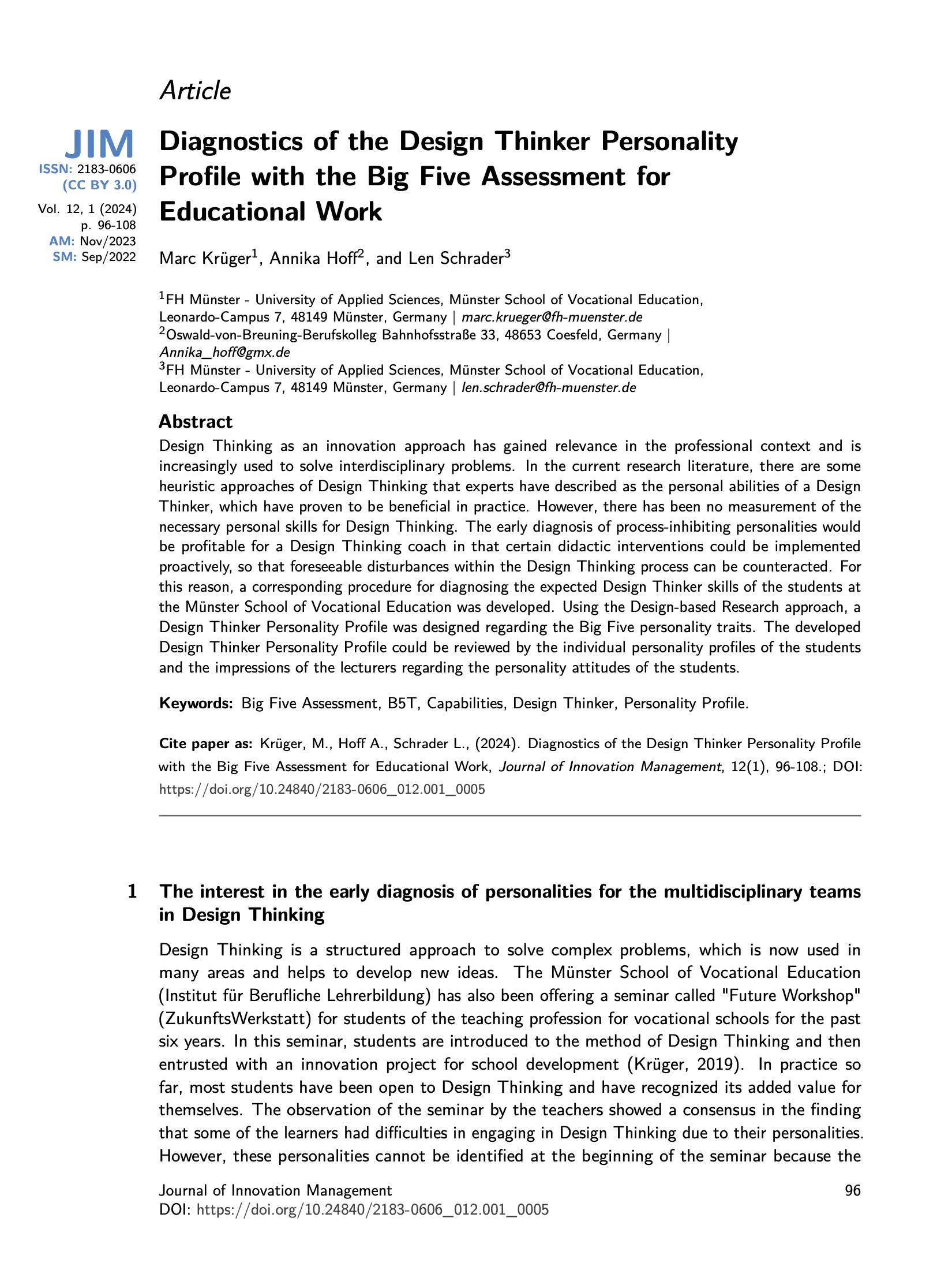The Diagnostics of the Design Thinker Personality Profile with the Big Five Assessment for Educational Work
Main Article Content
Abstract
Design Thinking as an innovation approach has gained relevance in the professional context and is increasingly used to solve interdisciplinary problems. In the current research literature, there are some heuristic approaches of Design Thinking that experts have described as the personal abilities of a Design Thinker, which have proven to be beneficial in practice. However, there has been no measurement of the necessary personal skills for Design Thinking. The early diagnosis of process-inhibiting personalities would be profitable for a Design Thinking coach in that certain didactic interventions could be implemented proactively, so that foreseeable disturbances within the Design Thinking process can be counteracted. For this reason, a corresponding procedure for diagnosing the expected Design Thinker skills of the students at the Münster School of Vocational Education was developed. Using the Design-based Research approach, a Design Thinker Personality Profile was designed regarding the Big Five personality traits. The developed Design Thinker Personality Profile could be reviewed by the individual personality profiles of the students and the impressions of the lecturers regarding the personality attitudes of the students.
Article Details
Authors who publish with this journal agree to the following terms:
- Authors retain copyright and grant the journal right of first publication with the work simultaneously licensed under a Creative Commons Attribution License that allows others to share the work with an acknowledgement of the work's authorship and initial publication in this journal.
- Authors are able to enter into separate, additional contractual arrangements for the non-exclusive distribution of the journal's published version of the work (e.g., post it to an institutional repository or publish it in a book), with an acknowledgement of its initial publication in this journal.
- Authors are permitted and encouraged to post their work online (e.g., in institutional repositories or on their website) prior to and during the submission process, as it can lead to productive exchanges, as well as earlier and greater citation of published work (See The Effect of Open Access).

